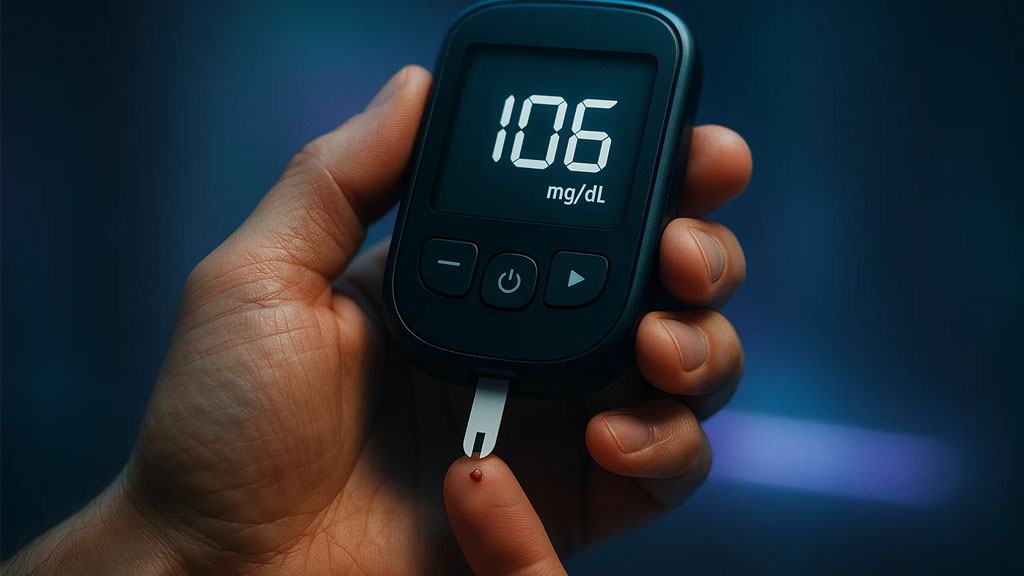High blood sugar (hyperglycemia) is a warning sign from your body that should not be ignored. While it can be temporary, consistently elevated glucose levels may lead to serious health problems such as type 2 diabetes and damage to vital organs. In this article, we’ll explore how high blood sugar affects your body and what steps you can take to manage and lower it effectively.
How High Blood Sugar Affects the Body
1. General Well-being
Many people with high blood sugar experience:
- fatigue even after rest,
- headaches,
- brain fog,
- mood swings and irritability.
2. Urination and Thirst
The body tries to get rid of excess sugar through urine, leading to:
- frequent urination,
- dehydration,
- excessive thirst.
3. Skin and Healing Problems
High sugar levels affect circulation and the healing process, causing:
- slow-healing wounds and cuts,
- dry, itchy skin,
- a higher risk of infections.
4. Vision Issues
Glucose can affect the lens of the eye, resulting in:
- blurred vision,
- temporary or progressive vision loss.
5. Nerve Damage
Chronic hyperglycemia damages nerves, leading to:
- numbness,
- tingling or burning in hands and feet (neuropathy).
Common Causes of High Blood Sugar
- Overeating sugary and high-carb foods.
- Lack of physical activity.
- Chronic stress.
- Hormonal imbalances.
- Genetics.
- Certain medications.
What to Do if Your Blood Sugar is High
1. Monitor Your Blood Sugar
Check your glucose levels regularly using a glucometer. This helps you stay aware and take action when needed.
2. Healthy and Balanced Diet
- Limit refined carbs and sugars (like sweets, white bread, and soda).
- Eat more fiber-rich foods: vegetables, whole grains, and legumes.
- Stick to smaller, regular meals (4–5 times a day) to prevent sugar spikes.
3. Stay Active
Moderate physical activity can help lower blood sugar:
- 30–40 minutes of walking,
- swimming,
- cycling or yoga.
4. Manage Your Weight
Excess body weight increases insulin resistance. Even losing 5–10% of your weight can significantly improve your blood sugar levels.
5. Reduce Stress
Stress hormones (like cortisol) can increase blood sugar. Try:
- meditation,
- deep breathing,
- getting enough sleep.
6. Consult a Doctor
If you suspect prediabetes or diabetes, see an endocrinologist. You may need medications, but they should only be prescribed by a medical professional.
High blood sugar isn’t a death sentence — but it’s also not something to ignore. It’s a wake-up call to change your lifestyle. The earlier you act, the more likely you are to avoid complications. A healthy diet, regular exercise, and self-awareness are key to controlling your blood sugar and living well.

